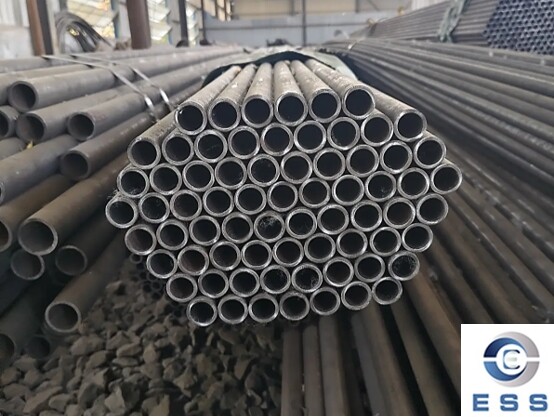
ASTM A333Gr.6 low-temperature steel seamless
steel pipe is a seamless pipe designed for low-temperature environments.
The following is a detailed introduction from the aspects of standards,
specifications, performance, and applications:
Implementation standards
ASTM A333Gr.6 low-temperature pipelines
follow the ASTM A333/A333M standard, which is the technical requirements
standard for seamless steel pipes and welded
steel pipes for low temperatures issued by the American Society for Testing
and Materials. This standard ensures the performance stability and safety of
steel pipes in low-temperature environments.
Specification range
1. Outer diameter range
Usually from 21.3mm to 762mm, even larger
sizes such as 1240mm can be customized to meet different engineering needs.
2. Wall thickness range
The wall thickness ranges from 2.0mm to
140mm, supporting a variety of wall thickness grades, such as SCH5S to XXS,
providing flexible selection space.
3. Spot specifications
Common spot specifications include multiple
combinations of outer diameter 8-1240mm and wall thickness 1-200mm, which are
convenient for quick procurement and use.
Performance characteristics
1. Chemical composition
Carbon content ≤0.30%,
manganese content 0.29-1.06%, silicon content ≥0.10%,
phosphorus and sulfur content ≤0.025%. The precise
control of these elements ensures the low-temperature toughness and strength of
seamless steel pipes.
2. Mechanical properties
Tensile strength ≥415MPa,
yield strength ≥240MPa, elongation ≥30%. These performance indicators ensure the bearing capacity and
plastic deformation capacity of steel pipes in low-temperature environments.
3. Low-temperature toughness
Under low-temperature conditions of -45℃, seamless steel pipes can still maintain good impact toughness and
avoid the risk of brittle fracture.
Production process
1. Steelmaking process
Advanced steelmaking technology, such as
electric furnace steelmaking or converter steelmaking, is used to accurately
control the chemical composition and remove impurity elements.
2. Forming process
There are mainly two types: hot extrusion
and cold drawing. The hot extrusion process makes the internal structure of the
steel more uniform, while the cold drawing process improves the dimensional
accuracy and surface quality, and is often used in the manufacture of precision
tubes.
3. Heat treatment process
Normalizing or normalizing plus tempering
heat treatment is usually used to refine the grains and improve the strength
and toughness of the steel.
Advantages
1. Good low temperature performance
A333GR.6 steel pipe adopts special alloy
composition and process, has a lower brittle transition temperature and higher
impact toughness, and can maintain stable performance in extremely cold
environments.
2. High mechanical strength
A333GR.6 seamless steel pipe has high yield
strength and tensile strength, can withstand greater pressure and load, and
ensure the safety and stability of the project.
3. Good weldability
The chemical composition and process
control of A333GR.6 steel pipe make it have good weldability and can meet
various connection requirements in the project.
4. Strong corrosion resistance
A333GR.6 seamless steel pipe adopts high
alloy composition, has good corrosion resistance, can resist erosion by various
corrosive media, and prolong service life.
Application areas
1. Petrochemical industry
Used in manufacturing equipment such as
reactors, heat exchangers, separators, and storage and transportation systems
for low-temperature chemicals.
2. Deep processing of natural gas and coal
In cold areas, when transporting oil and
natural gas, etc., or some low-temperature chemical media, ensure the normal
operation of the pipeline system.
3. Refrigeration industry
Used in the low-temperature pipeline part
of refrigeration equipment, such as refrigerant delivery pipelines in large
cold storages.
4. Polar scientific research facilities and
liquefied carbon dioxide transportation
In low-temperature environments such as
polar regions, ensure the safe and reliable operation of pipes, suitable for
use with drill
pipes and other structural components.
Read more: ASTM seamless steel pipe main material standards













 Eastern Steel Manufacturing Co.,Ltd not only improve product production and sales services, but also provide additional value-added services. As long as you need, we can complete your specific needs together.
Eastern Steel Manufacturing Co.,Ltd not only improve product production and sales services, but also provide additional value-added services. As long as you need, we can complete your specific needs together.










